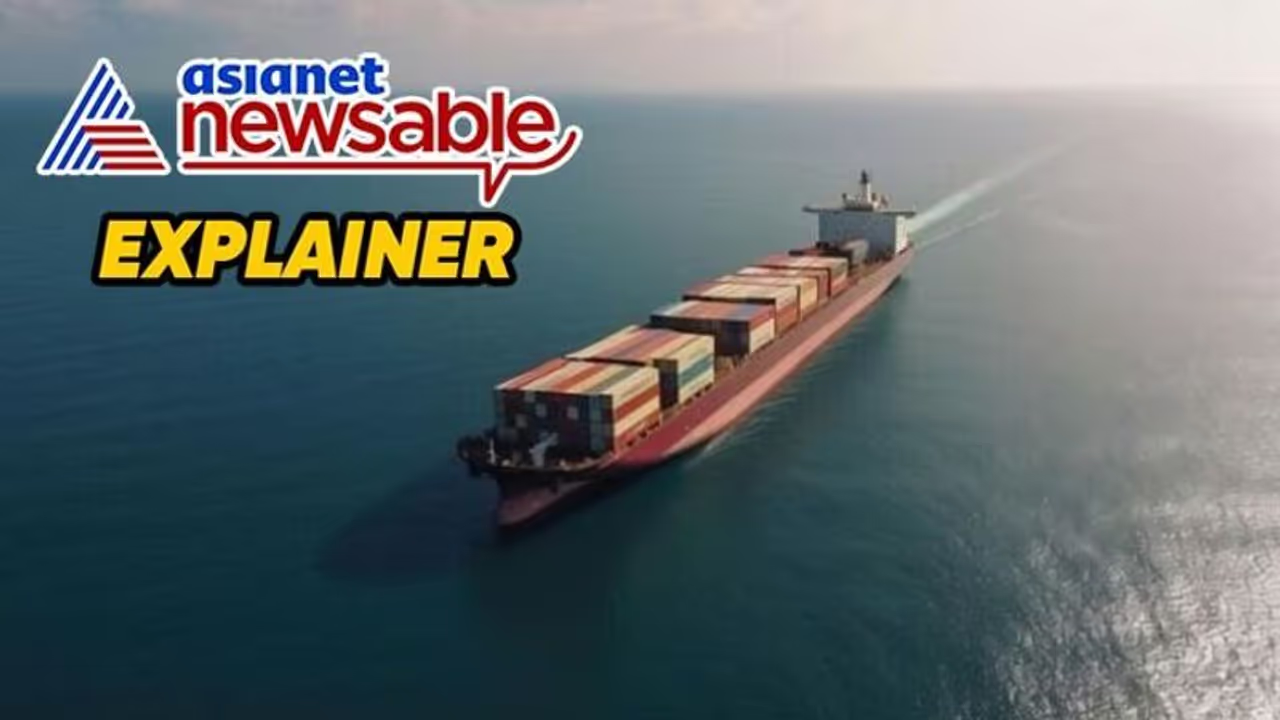The United States is set to announce the deployment of a "special upgraded multinational task force" in the Red Sea to deter Houthi attacks on ships. While not escorting vessels, the task force's existence aims to enhance the ability to counter threats. Girish Linganna reports
The United States is expected to declare on Friday (December 15) the deployment of a "special upgraded multinational task force" in the Red Sea to dissuade the Houthis, or rebel Ansar Allah movement, from launching additional attacks against ships. According to a senior Israeli official cited in media reports, while the task force would not accompany vessels through the Red Sea, its mere existence would facilitate the ability to counter threats.

Additionally, the media reported that US officials stated that the Biden administration recently issued multiple warnings to Houthi rebels through various communication channels, urging them to cease their assaults on vessels in the Red Sea and Israel.
According to the report, during a recent visit to the Gulf, US Special Envoy for Yemen Tim Lenderking instructed his counterparts in Saudi Arabia, Oman, and Qatar to relay warning messages to the Houthis and express Washington's utmost concern over the rebels' assaults on ships in the Red Sea. Several countries in the region have reportedly conveyed similar messages to the Houthis, making it abundantly clear that their actions are 'unacceptable'.
During a briefing, Pentagon Press Secretary Pat Ryder stated that details regarding the task force would be forthcoming.
The Houthis have previously declared their intention to hinder the passage of vessels carrying Israeli goods or en route to Israel through the Red Sea and the Arabian Sea until Israel ceases its military operation in the Palestinian Gaza Strip.
Since the commencement of hostilities between Israel and the Palestinian movement Hamas on October 7, the Houthis have threatened commercial shipping and civilian infrastructure in Israel as well as the Red Sea and Gulf of Aden with a series of missile and drone assaults.
The Houthi Group
Massive Palestinian support demonstrations occurred in October, mere days following the escalation of the Arab-Israeli conflict in the capital city of Yemen and several other provinces under the control of the Houthi group "Ansar Allah." Demonstrators in the thousands, draped with Palestinian flags, bellowed catchphrases and vowed to engage in military operations against Tel Aviv actively.
Following a protracted dispute spanning two months in the Middle East, the Houthis substantiated their readiness to confront the Western powers. The majority of "Ansar Allah's" supporters are thought to be Zaidis, who live in western Yemen and belong to one of the branches of Shiism.
Since their tribes have always been considered an exceptional example of resistance, not even nineteenth-century British forces that conquered the Yemeni coast could subdue them. Yemen experienced an effective division until 1990, wherein the territory formerly under British protectorate status was divided between the People's Democratic Republic of Yemen, which the Zaidis governed, and the Yemen Arab Republic.
After fourteen years since unification, the Zaidis rebelled against the central government, alleging that its populace comprised "corruption sold by the United States." The al-Houthi family spearheaded the rebellion, and Shiite insurgents were called Houthis. Despite this, defeat appeared inevitable in the face of Washington's preeminent global position. During that period, the Houthis were equipped solely with antiquated weaponry, dagger jambiyas, and an unyielding determination to fight.
At this juncture, Iran intervened, extending military and political assistance to "Ansar Allah". Houthi forces grew more formidable over time, and in 2015, they captured the capital city of Yemen, Sanaa. Sunni Arab nations even formed a military coalition against the Houthis and invaded Yemeni territory under the leadership of Saudi Arabia.
However, having anticipated a swift triumph, they unknowingly became embroiled in violent confrontations and were unable to subdue the Shiite insurgents.
War on Israel
The Houthis launched three assaults against Israeli territory with ballistic missiles and drones laden with explosives in late October. They shot down an American MQ-9 Reaper drone over Yemeni territorial waters one week later. Midway through November, "Ansar Allah" declared the launch of an additional missile towards the southern Israeli city of Eilat, which was subsequently followed by the apprehension of the Tel Aviv-owned commercial vessel Galaxy Leader in the Red Sea.
The Houthis stated their intention to treat the captured crew members according to Islamic laws as hostages, while foreigners without Israeli citizenship were accepted as "guests." The ship carried 25 people, while Israel persistently insisted that the seized vessel had no connection to them.
The Times of Israel reported that Galaxy Leader is registered to a British company partially owned by Israeli businessman Rami Ungar, with no Israelis on board. However, according to Kyodo, the ship is operated by the Japanese company Nippon Yusen, with a crew of citizens from Bulgaria, Mexico, Romania, Ukraine, and the Philippines.
However, "Ansar Allah" maintains its position that its militants' activities in the Red Sea are and will exclusively target vessels associated with Israel or its subsidiaries. The Houthis shelled Eilat once more in late November and commandeered the oil tanker Central Park, which they claimed belonged to the company Zodiac Maritime, off the coast of Yemen. Ships were even instructed by the United States Navy to "avoid that area," as per their statements.
The Houthis escalated their assaults on hostile vessels this month. They initially employed drones to engage a British commercial vessel and two Israeli ships in the Bab-el-Mandeb Strait. Then, employing identical missiles and drones, they launched an assault against the United States destroyer USS Carney.
"Ansar Allah" initiated hostilities against a Norwegian oil tanker en route to the port of Israel on Tuesday, December 12. Fighters of the movement maintain their steadfast stance that vessels with ties to Tel Aviv are not permitted in the Red and Arabian Seas until the Gaza operation ceases.
